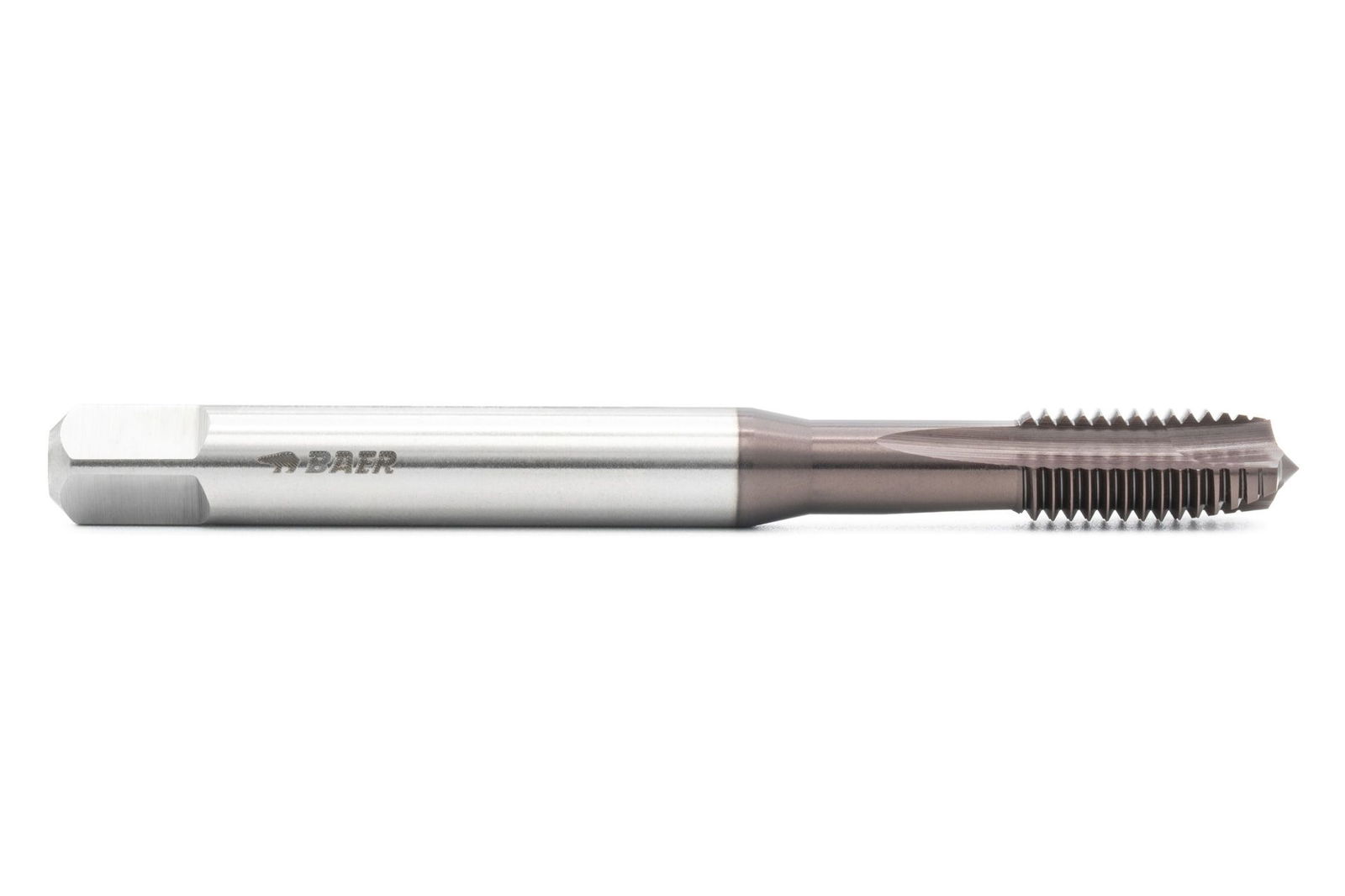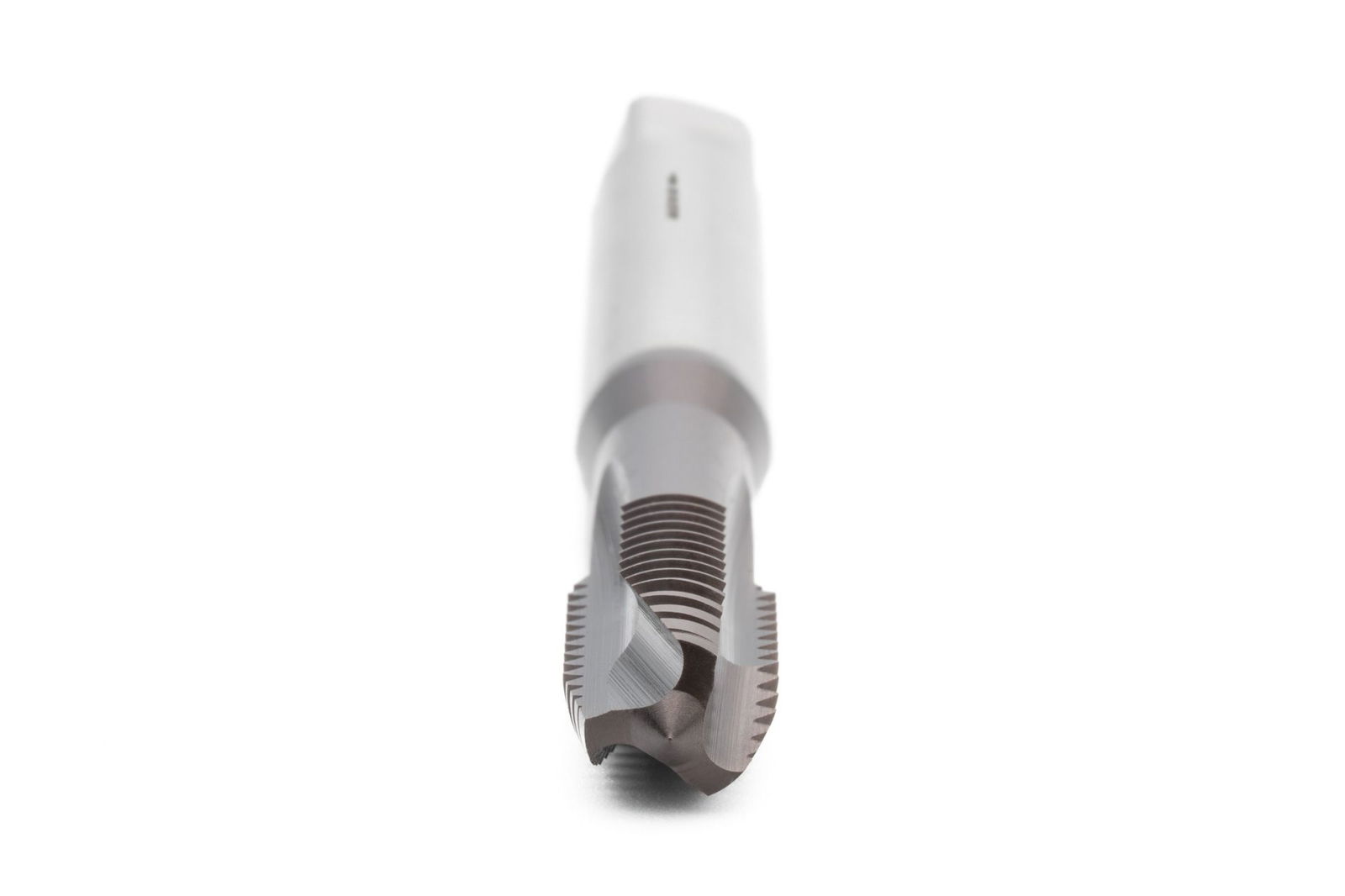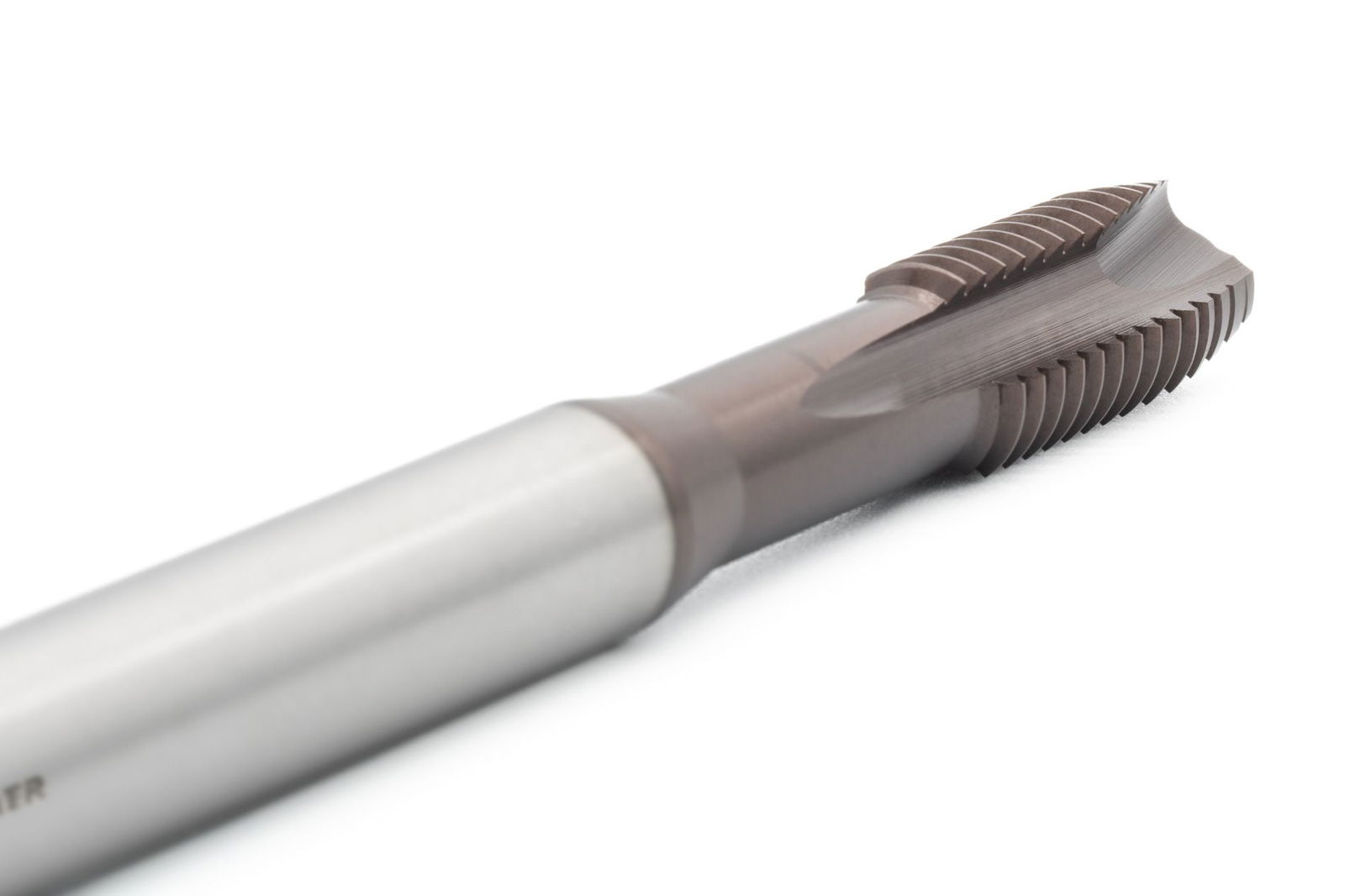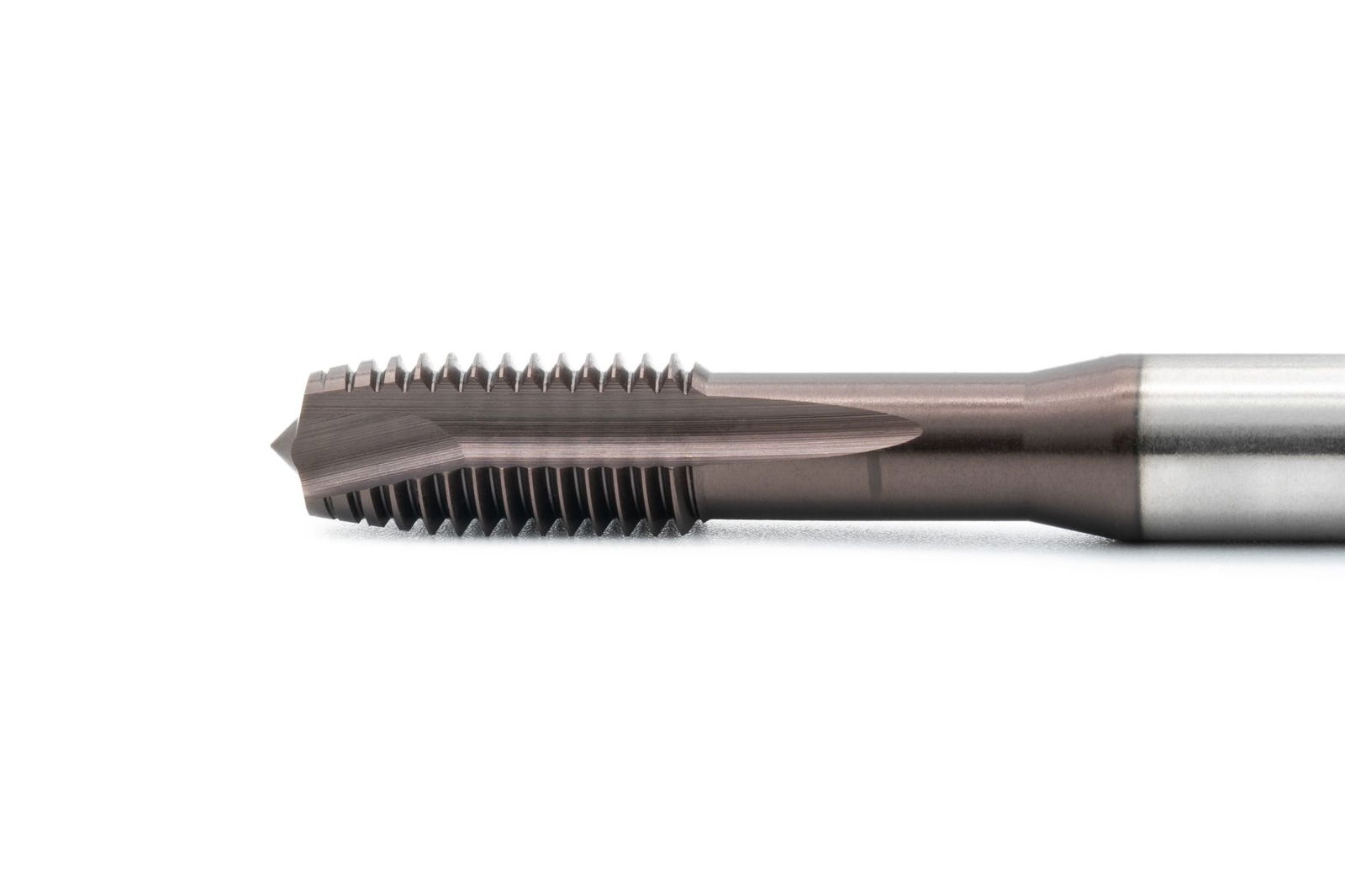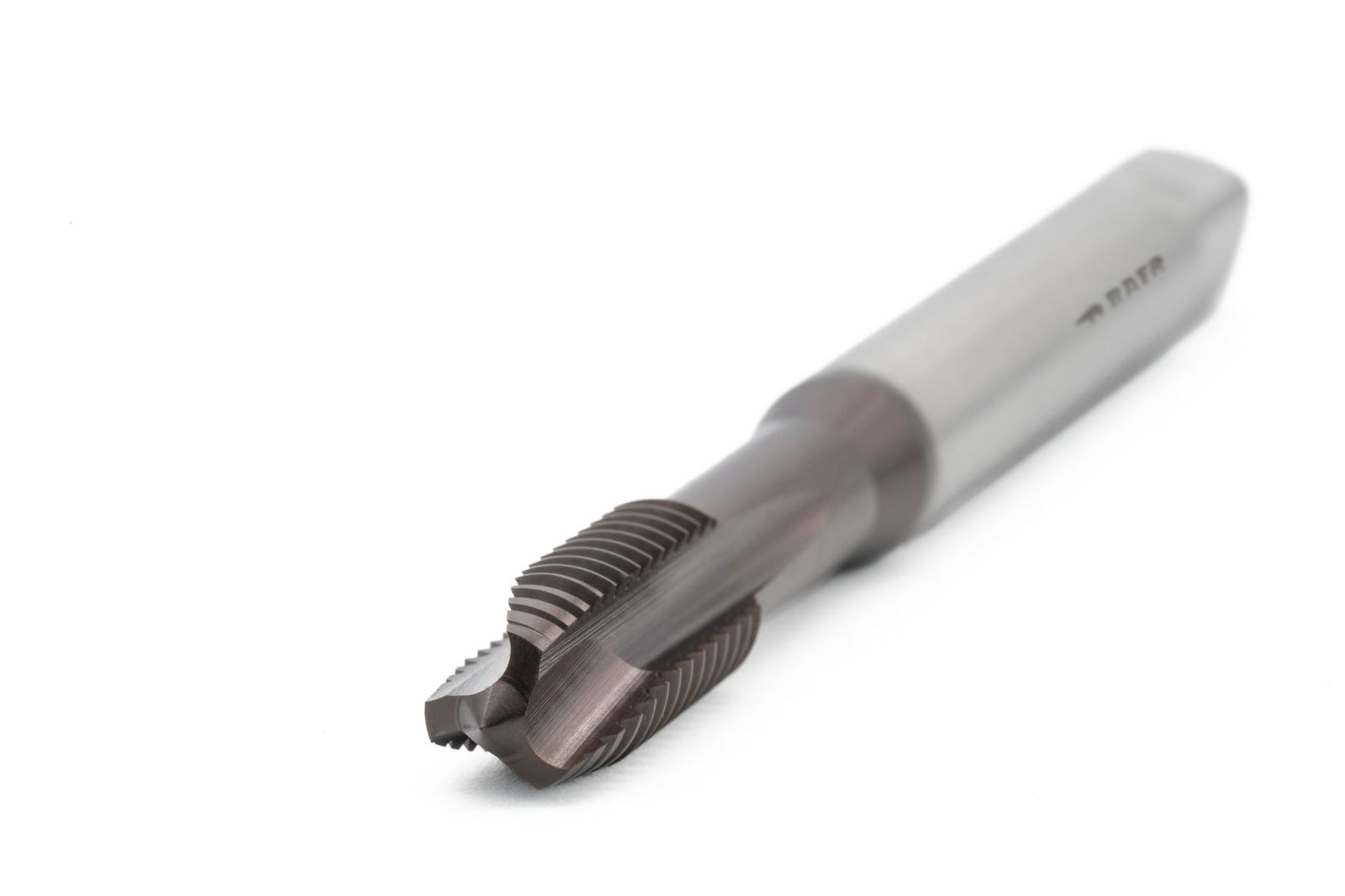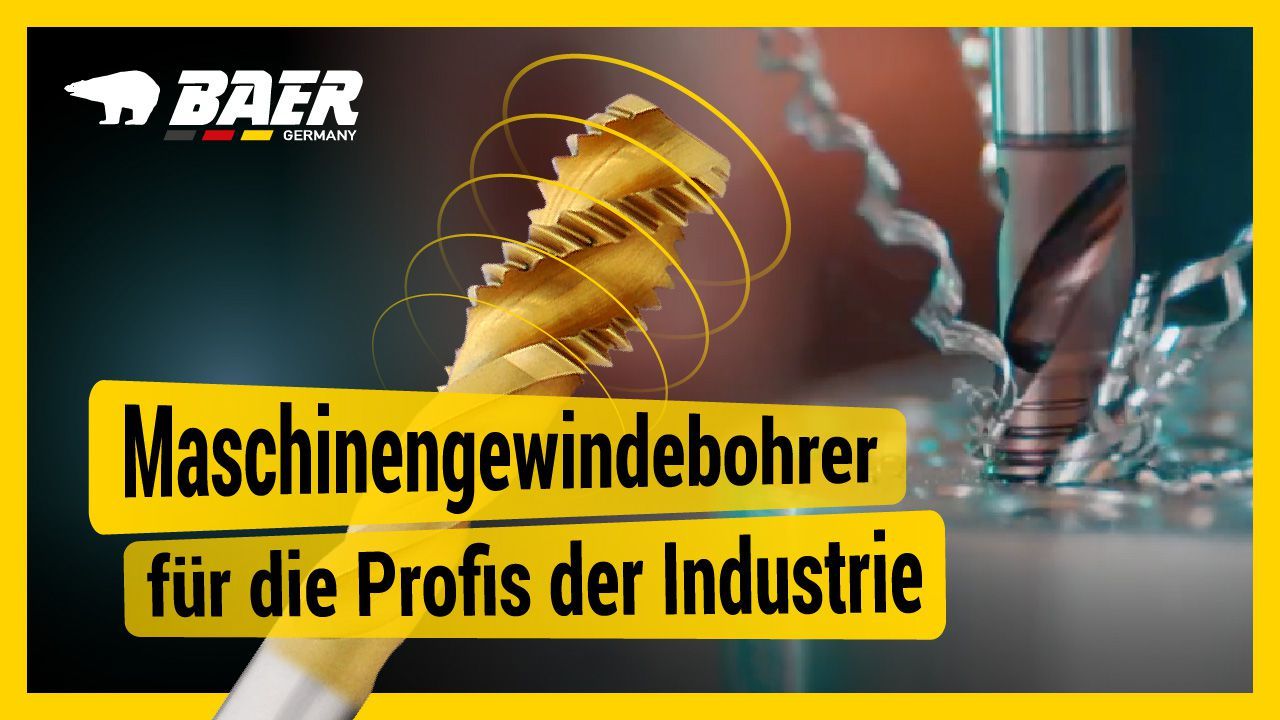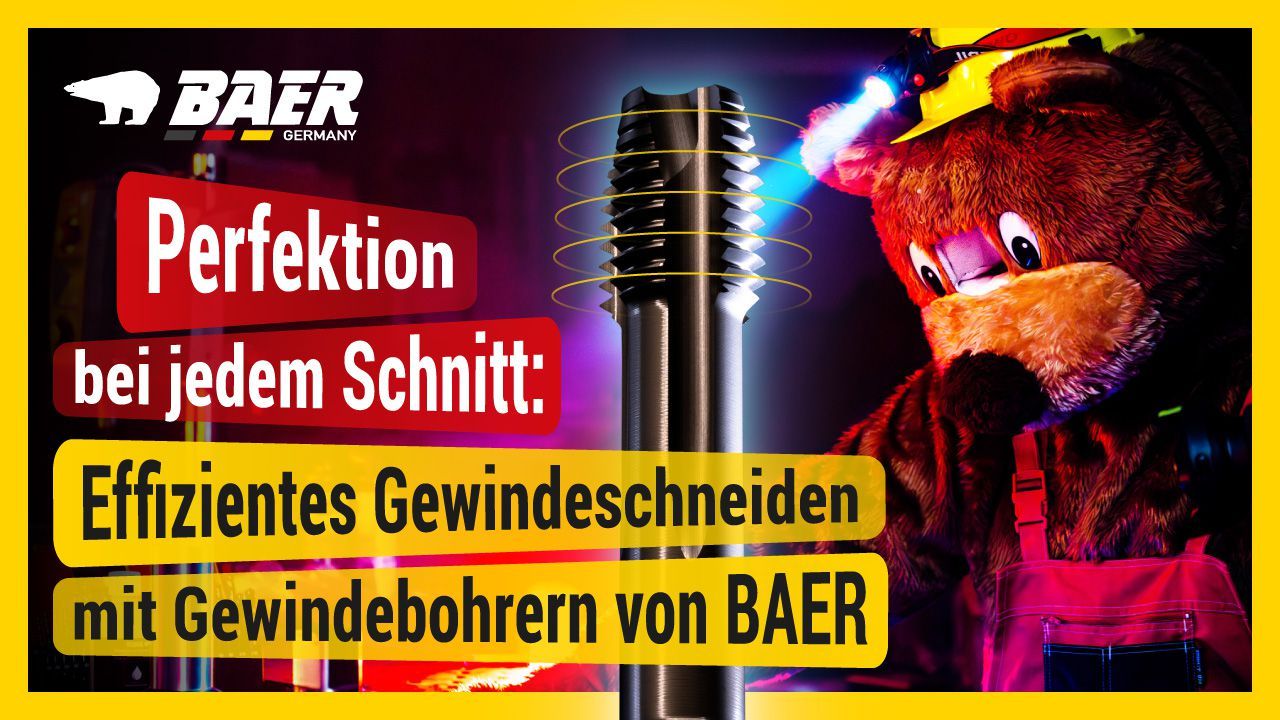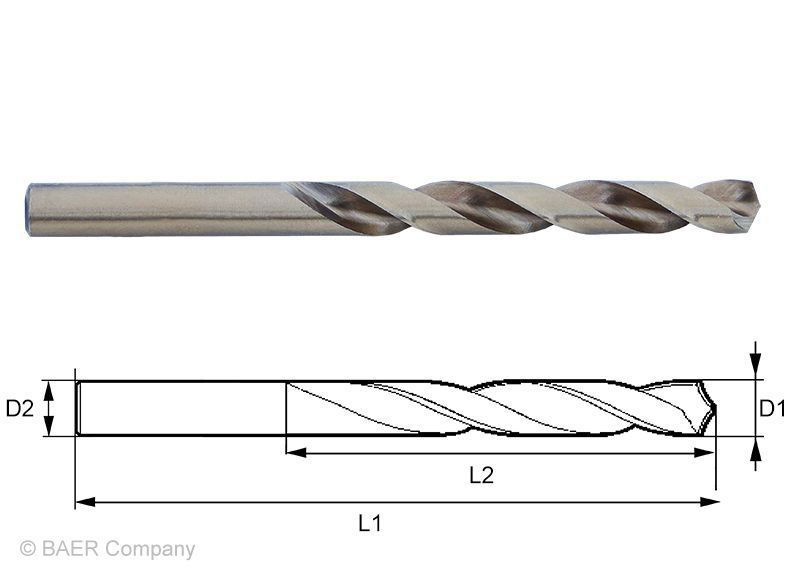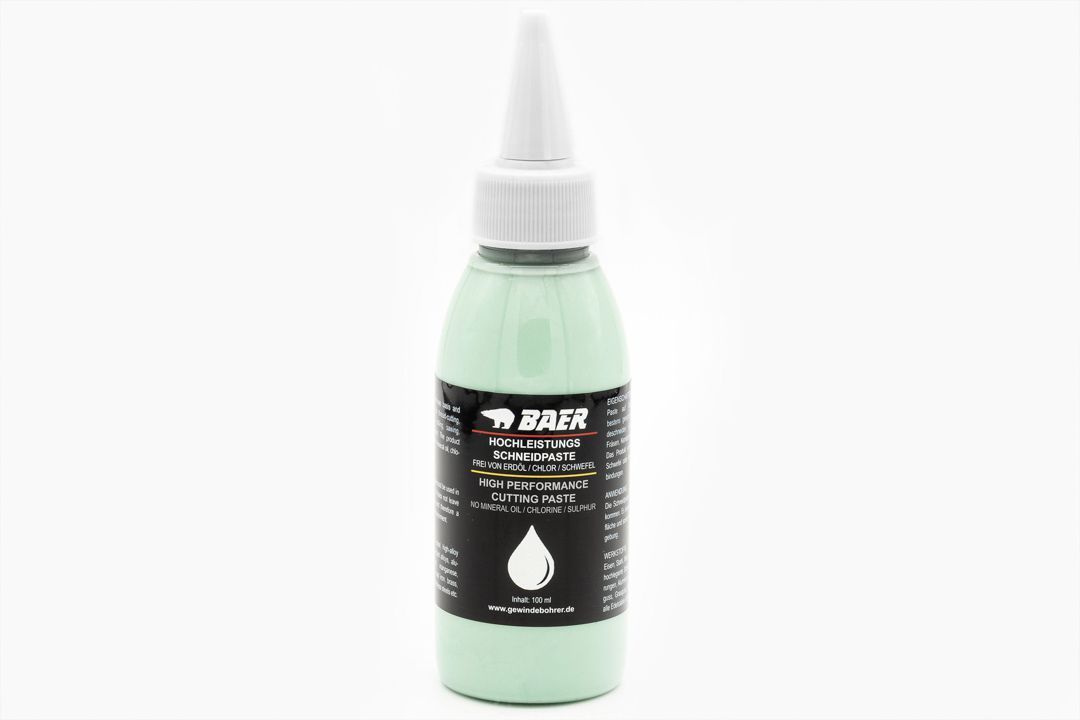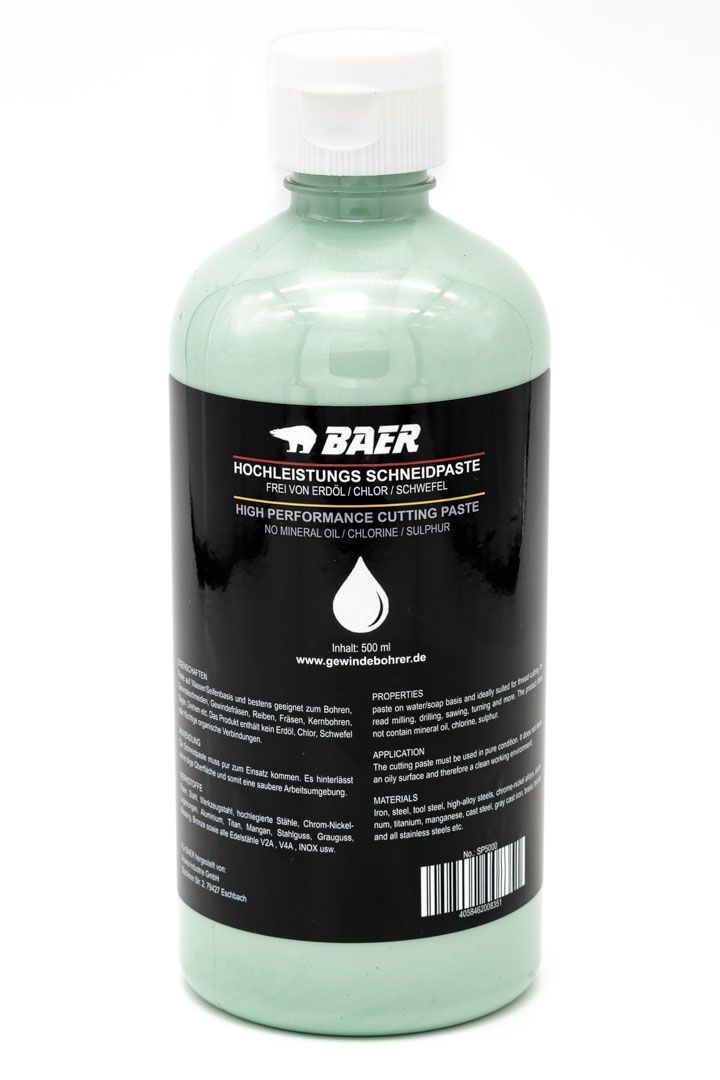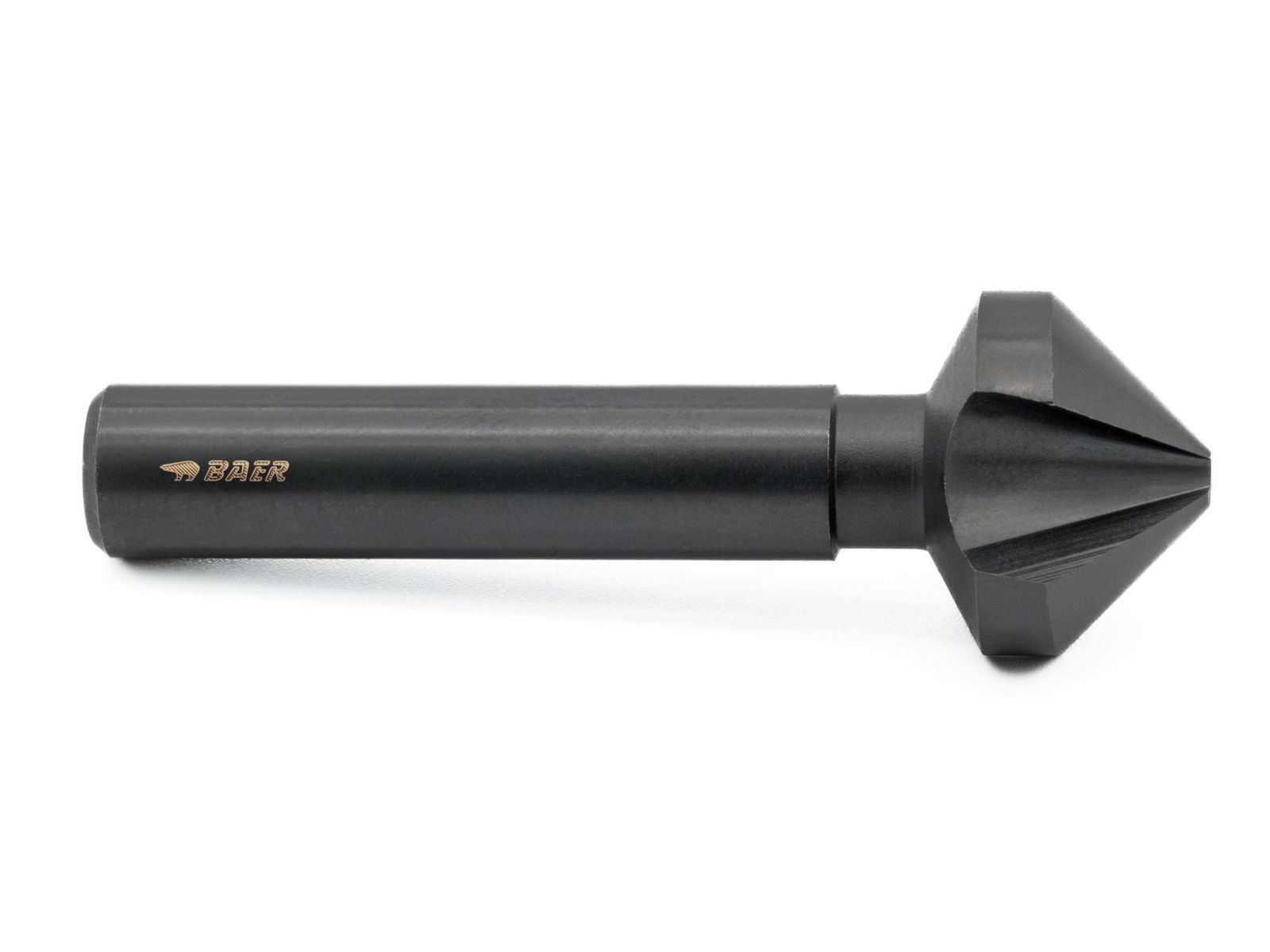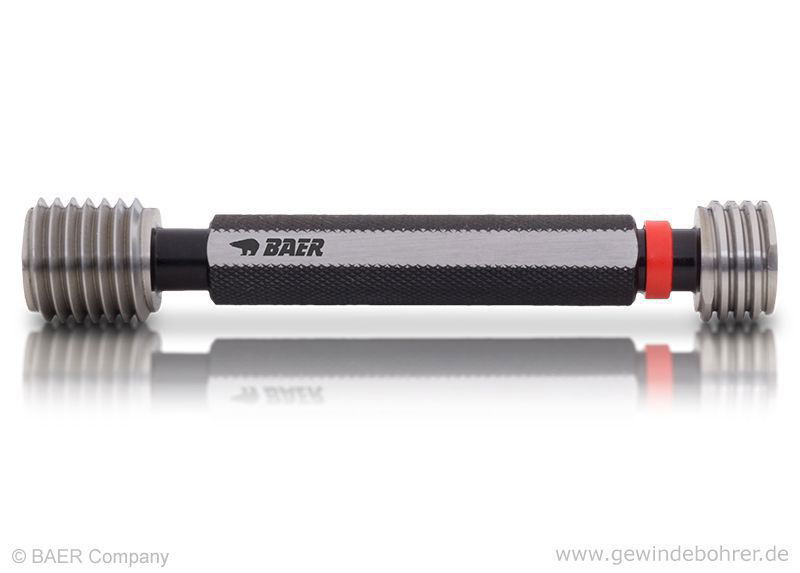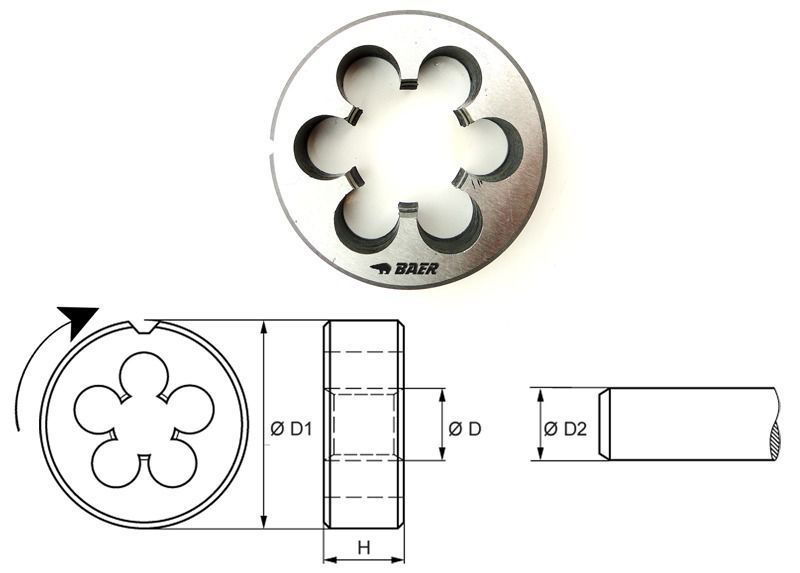BAER UNiTap HSSE-TiAlN Machine Tap Form B - M 2 x 0.4 - DIN 371
BAER UNiTap HSSE-TiAlN Machine Tap Form B - M 2 x 0.4 - DIN 371
UNiTap - Universal High-End machine tap
A real revolution in tapping!
Our UniTap machine taps are powerful and reliable taps for efficient machining in one step with the machine. Especially in workshops and industrial production with changing requirements, UniTap machine taps are used. Since only one tool is needed for all applications and these do not have to be changed while the dimensions remain the same, there are enormous cost savings here.
They can be used in CNC machines, thread cutting machines, cordless drilling machines and pneumatic tapping arms, among others. As they are characterised by high efficiency and low production costs, they are often used in series production. The thread is cut by machine in one operation. Thus, although the UNiTap tap can basically be compared to universal short machine taps, it is designed for use with the machine.
The screw tap has a reinforced shank according to DIN 371, which means that the shank diameter is larger than the thread itself. This makes the screw tap run more stably. However, it limits the thread length that can be cut with it. It can be used for through holes because the long chamfer, the straight flutes and the spiral point ensure that the chip is transported forward out of the hole.
Every material shows individual chip behaviour. Therefore, screw taps must have the correct rake angle and - for even better results - a specially treated surface. This is the only way to achieve a good chip transport and to produce a thread that is true to gauge.
The high quality of the cobalt-alloyed HSSE steel we use ensures that our tools are extremely durable and robust. Due to special hardening processes and repeated tempering the hardness structure is very homogeneous, which forms the ideal basis for a genuine BAER screw taps. This increases the toughness and stability of the screw taps, allowing them to remain in use for longer.
The TiAlN coating is more resistant to friction and heat and therefore offers performance advantages at high temperatures, few cooling options (such as with small dimensions and deep holes) and faster cutting speeds (more than 60 m/min). TiAlN also has advantages when machining poorly machinable and wearable materials and can also be used dry to a limited extent. Recoating of TiAlN tools is possible up to 5 times without removing the old coating.
Advantages of the UNiTap tap
- for almost all materials
- for almost every application
- excellent cutting results
- high tool life time
- unique cutting edge geometry
- ideal for all workshops and productions with changing requirements
- enormous cost saving - only one tool for all applications
Dimensions
| Diameter |
2 |
|---|---|
| Nominal diameter in inches |
0,079 |
| Nominal diameter in mm |
2 |
| Pitch |
0,4 |
| Pitch in mm |
0,4 |
| Dimension |
M 2 x 0,4 |
Characteristics
| Product group |
Screw taps |
|---|---|
| Product type |
Machine taps |
| Thread standard |
M: Metric ISO standard thread according to DIN 13 |
| Tolerance |
ISO2/6H |
| Direction |
Right |
| Standard |
DIN 371 |
| Tensile strength at room temperature |
up to 1200 N/mm² | 38 HRC |
| Material |
HSSE TiAlN |

1.6 mm

Through hole up to 4 x D

Form B with spiral point

4-5 threads

Chips are removed downwards in the direction of cutting

External cooling and lubrication

HSSE TiAlN

up to 1200 N/mm² | 38 HRC

ISO2/6H
Applications
- Steels and steel alloys up to 1200 N/mm²
- Stainless steels up to 1000 N/mm²; Stainless steels; VA steels, INOX, V2A, V4A
- Lamellar graphite cast iron (GG) and with spheroidal graphite (GGG) up to 1000 N/mm²; Grey cast iron, nodular cast iron
- Pure titanium and titanium alloys up to 900 N/mm²
- Pure nickel and nickel alloys up to 900 N/mm²
- All cast and wrought aluminium alloys
- Copper, copper alloys and brass (all chip lengths)
Technical drawing

| D1 |
M 2 x 0,4 |
|---|---|
| D2 |
2,8 mm |
| L1 |
45 mm |
| L2 |
8 mm |
| Diameter |
2 |
| Square |
2,1 mm |
Application – Sample materials
| Soft magnetic iron, construction steels, free-cutting steels, case-hardening steels | Cutting speed vc in m/min | |
|---|---|---|
| 1.1014 | RFe80 | 25 - 50 |
| 1.0570 | St52-3 | 25 - 50 |
| 1.0718 | 9SMnPb28 | 25 - 50 |
| 1.6523 | 20NiCrMo2 | 6- 30 |
| Carbon steels, spring steels, alloyed steels, quenched and tempered steels | Cutting speed vc in m/min | |
|---|---|---|
| 1.0503 | C45 | 20 - 30 |
| 1.1269 | Ck85 | 20 - 30 |
| 1.7218 | 25CrMo4 | 6 - 30 |
| 1.2344 | X40CrMoV5-1 | 6 - 30 |
| Stainless steels (ferritic, austenitic, martensitic) | Cutting speed vc in m/min | |
|---|---|---|
| 1.4104 | X14CrMoS17 | 12 - 35 |
| 1.4301 | X5CrNi18-10 (V2A) | 12 - 15 |
| 1.4571 | X6CrNiMoTi17-12-2 (V4A) | 12 - 15 |
| 1.4125 | X105CrMo17 | 12 - 15 |
| Grey cast iron | Cutting speed vc in m/min | |
|---|---|---|
| 0.6010 | GG10 | 35 - 50 |
| 0.6020 | GG20 | 35 - 50 |
| 0.6030 | GG30 | 35 - 50 |
| 0.6040 | GG40 | 35 - 50 |
| Spheroidal graphite cast iron, malleable cast iron | Cutting speed vc in m/min | |
|---|---|---|
| 0.7040 | GGG40 | 12 - 45 |
| 0.7060 | GGG60 | 12 - 45 |
| 0.7070 | GGG70 | 12 - 45 |
| 0.8035 | GTW35-04 | 10 - 25 |
| Pure titanium and titanium alloys | Cutting speed vc in m/min | |
|---|---|---|
| 3.7024 | Ti99.5 | 3 - 15 |
| 3.7034 | Ti99.7 | 3 - 15 |
| 3.7165 | TiAl6V4 | 1 - 5 |
| 3.7174 | TiAl6V4Sn2 | 1 - 5 |
| Pure nickel and nickel alloys | Cutting speed vc in m/min | |
|---|---|---|
| 1.3926 | RNi12 | 3 - 10 |
| 2.4668 | NiCr19Fe19NbMo (Inconel 718) | 3 - 10 |
| 2.4630 | Ni-Cr20Ti (Nimonic 75) | 1 - 5 |
| 2.4665 | NiCr22Fe18Mo (Hastelloy X) | 1 - 5 |
| Pure copper and copper alloys, brass, bronze (all chip lengths) | Cutting speed vc in m/min | |
|---|---|---|
| 2.0065 | E-Cu 58 | 50 - 60 |
| 2.1247 | CuBe2 | 30 - 65 |
| 2.0360 | CuZn40 | 30 - 65 |
| 2.1020 | CuSn6 | 12 - 20 |
| Pure aluminum, aluminum cast and wrought alloys (all chip lengths) | Cutting speed vc in m/min | |
|---|---|---|
| 3.0205 | Al99 | 50 - 65 |
| 3.1645 | AlCuMgPb | 50 - 65 |
| 3.2373 | G-AlSi9Mg | 40 - 65 |
| 3.2583 | G-AlSi12(Cu) | 40 - 65 |
Cutting speed vc [m/min] = (Outer diameter * π * speed) / 1000
Rotation speed n [1/min] = (Cutting speed in m/min * 1000) / (Outer diameter * π)
Feedrate programming [mm/min] = speed * pitch
Please note that the above cutting speeds are indicative and must be adjusted depending on lubrication and actuation.
Further information
- M - Metric ISO thread DIN 13
- Designations, geometries and definitions on taps
- Thread tolerances of the internal thread
- Internal thread and core hole dimensions
- Tap Chamfer forms
- Comparison inch-mm
- Surface treatments on tapping tools
- Cutting speeds and lubrication/cooling
- Information about tapping
- Material table

